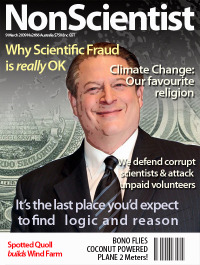 Bishop Hill
Bishop Hill Met Office code
 Dec 22, 2009
Dec 22, 2009  Climate: CRU
Climate: CRU  Climate: Surface
Climate: Surface  FOI
FOI John Graham-Cumming reports that the Met Office has published the code for preparing the land surface records.
This is slightly odd. What appears to have been released is the code for generating the CRUTEM land temperature index, which is actually prepared by CRU. However this does tally with what we know about the data the Met Office released the other day. This was, contrary to the impression given by the Met Office press release actually the corrected data which is used as input into the CRUTEM average and also the HADCRUT global temperature index. It's the latter index that most people are interested in.
If this is confusing you, I've prepared a summary of my understanding of how it all fits together. I'm not promising this is correct

I've made everything but the data and code released by the Met Office semitransparent. As you can see, what we are looking at are intermediates in the preparation of the global temperature index. While this is welcome, the guts of the changes are in the selection of the stations and in the correction of those stations for the plethora of problems with them - urban heat islands, changes in equipment, station moves, changes in observation time and so on. So while there is a feel of increasing openness, in reality, the shutters are only open the barest crack and it's still not possible to make out what's going on inside.
Meanwhile, even this extremely limited attempt at openness is not all it seems to be. John G-C has been looking at the code and running it against the data he has. What he has found is that prior to 1855 there was no southern hemisphere data and that when you run the Met Office's newly released code, this shows up as a gap in the graph of the average. But there is no such gap in the actual CRUTEM index. John's conclusion is that what we're looking at is not the actual code used in CRUTEM, but something written especially for public consumption. In light of the scorn that many programmers have been pouring on the quality of the coding standards at CRU, this might suggest that the original code was just too awful to make available for public inspection.




